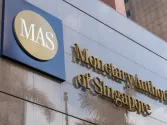
ASEAN banks well capitalized to meet Basel III capital ratios
As well as liquidity ratios.
Moody's Investors Service says that banks in the Association of Southeast Asian Nations (ASEAN) region — namely those in Indonesia, Malaysia, Singapore, Thailand, Vietnam and the Philippines — are well placed to comply with stricter capital and liquidity requirements under Basel III.
According to a release from Moody's Investors Service, Moody's-rated banks in the ASEAN region are well capitalized and can meet the higher minimum capital requirements under Basel III.
"As for the 60% minimum liquidity coverage ratio under Basel III, in many cases, the banks are already 100% compliant, though national differences make it difficult to compare the reported ratios across different banking systems," says Alka Anbarasu, a Moody's Vice President and Senior Analyst.
"On the issue of additional banking regulations, we note that regulators in the region appear hesitant to embrace the wider bail-in and total loss absorbing capital (TLAC) guidelines as they await more clarity from the Financial Stability Board (FSB)," adds Anbarasu.
Anbarasu also expects selective issuance of Basel III securities by banks across ASEAN; in particular, to replace legacy old-style securities which will be callable over 2015-2017.
Here's more from Moody's Investors Service:
Moody's analysis is contained in its just-released presentation titled "ASEAN Banks Well Placed for Basel III Capital and Liquidity Ratio Compliance," and is authored by Anbarasu.
Moody's points out that liquidity coverage ratios (LCRs) have already been implemented in Singapore and Malaysia.
Given the predominance of retail funding as well as government bonds in the investment portfolio,
Moody's expects most rated banks in the region will be able to comply with the 60% minimum requirement by end-2015; in many cases banks are already 100% compliant.
However, national differences on the definition of high quality liquid assets and outflows, whether or not LCRs should be assessed based on a consolidated or standalone basis, and LCR requirements in different currencies could make it difficult to compare the reported ratios across different banking systems.
Moody's adds that it expects regulators in the region will announce by the end of 2015, the list of domestic systemically important banks (D-SIB) in their respective banking systems. Moody's points out that seven banks in Singapore — three local and four foreign — have already been identified as systemically important.






















 Advertise
Advertise








